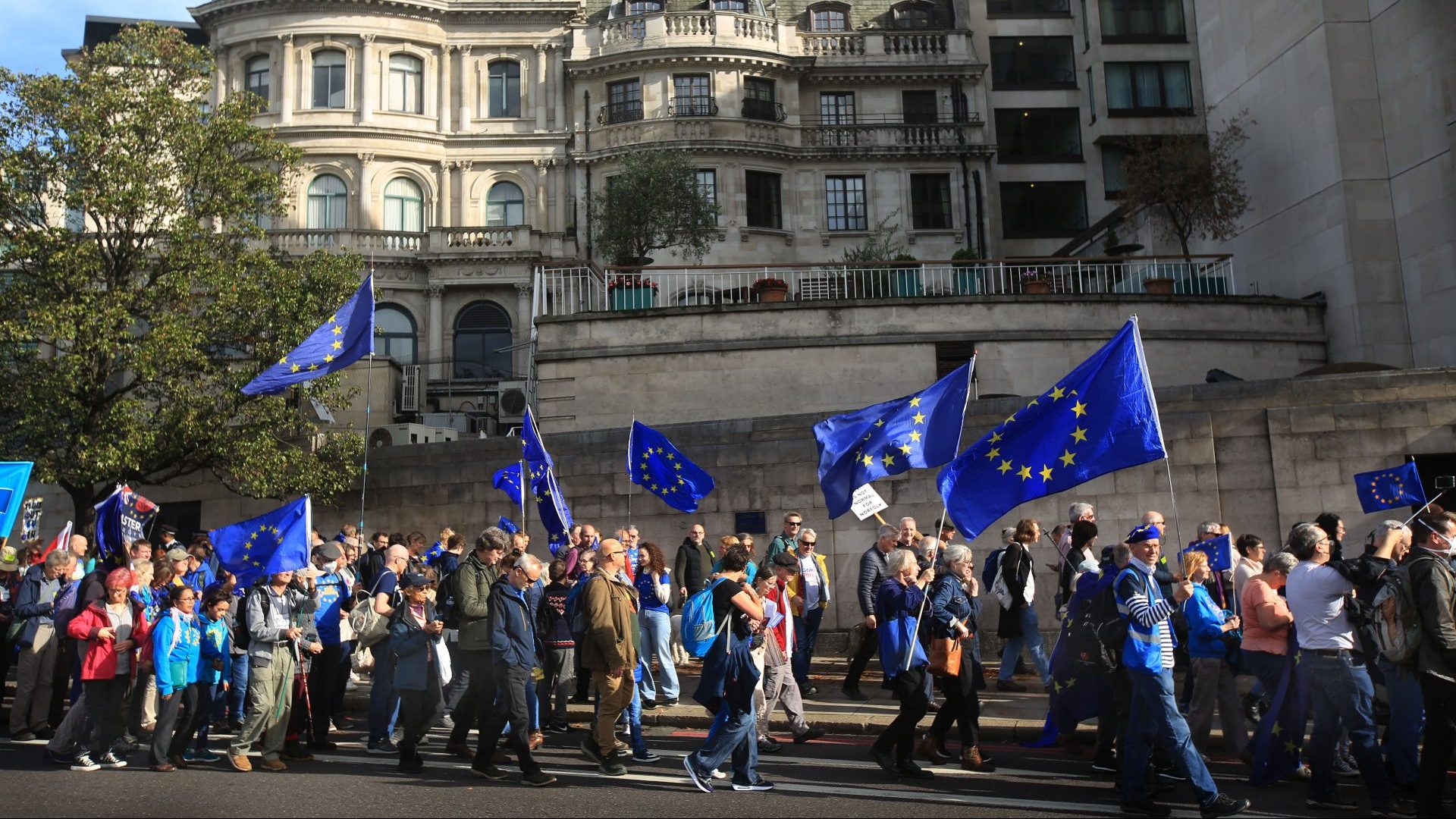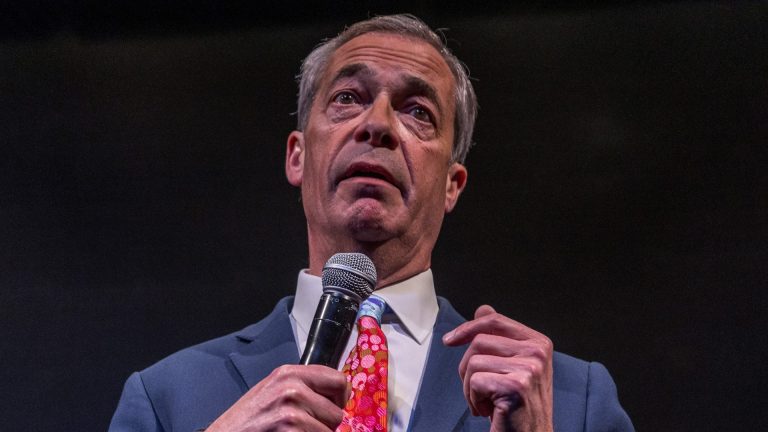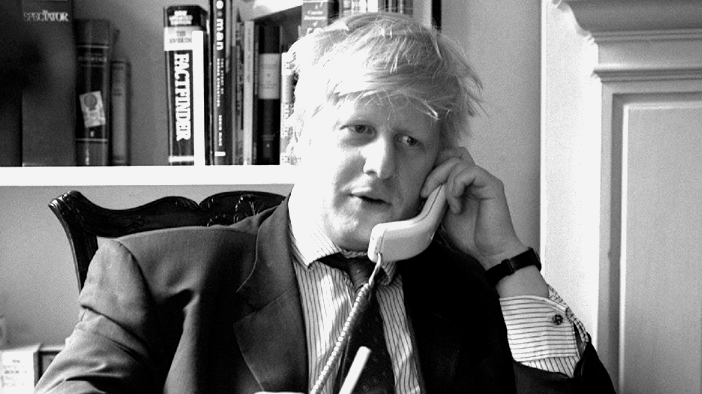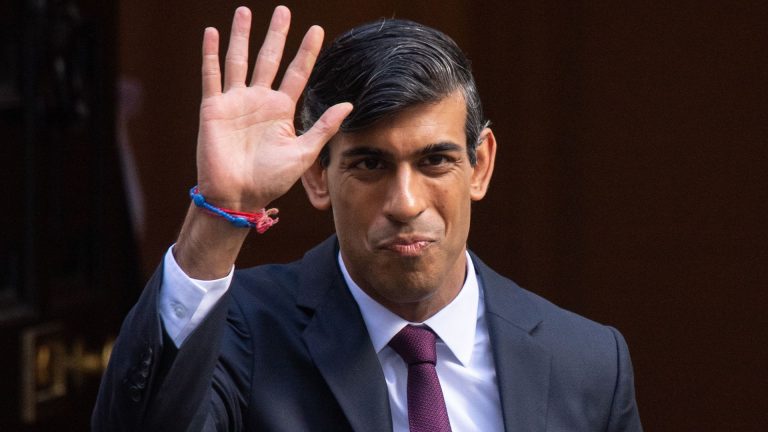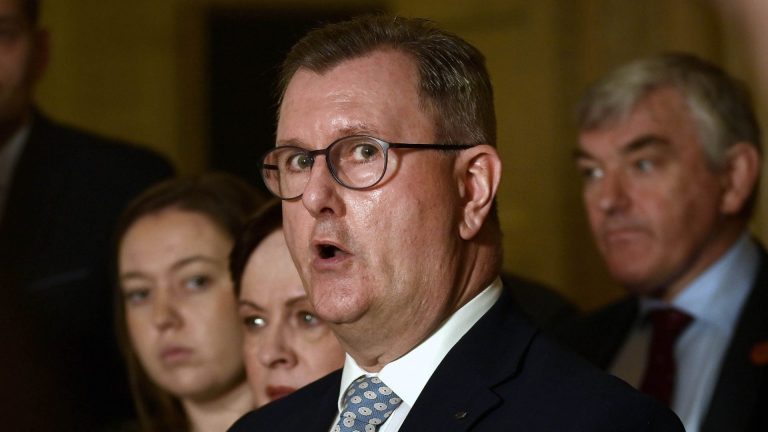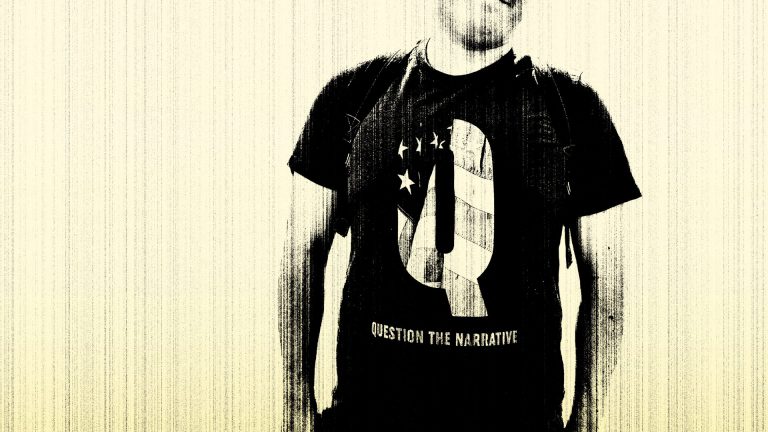There’s a sense of excitement in the Rejoin camp. Just look at the polling on Brexit these days. Look at the surging public appetite to openly advocate rejoining the European Union. And the polling companies also know it is a question to track closely.
Pro-Europeans are in a new position in 2023 and it’s probably the best position we’ve ever been in since 1973, some 50 years ago. So now it is imperative to switch into a fitting mode for these new circumstances – positive campaigning.
While we should continue to highlight how Brexit continues to cause damage, we also need to start setting out the positive, inspiring vision of a UK returning energetically to its rightful, leading place in the European family. And that positive vision needs to be made relevant to each and every community of the UK. If we’re not making the inspiring case, who will?
Adding this new strand right now is important. Up to this point we have predominantly been saying “Brexit isn’t working”. Now the media are starting to say it too and the country is moving firmly onto this stepping stone in the journey.
But the major English political parties are not looking beyond a failed Brexit; they are not discussing options of joining the single market, customs union, free movement or EFTA. They are not discussing forging new arrangements or rejoining the EU outright. They are far behind the public on this and stuck in the past while the public is looking for something new.
So who is going to lead the call? It must be us – campaigns like the European Movement and our wider community. Politicians are very rarely leaders anyway, they are more often followers who run with narratives that they see winning. The mainstream media too, with perhaps the exception of the excellent Financial Times, are not going to be setting out a bold case for Rejoin.
So it must be us. We are the ones with the passion, so we need to learn how to voice that passion.
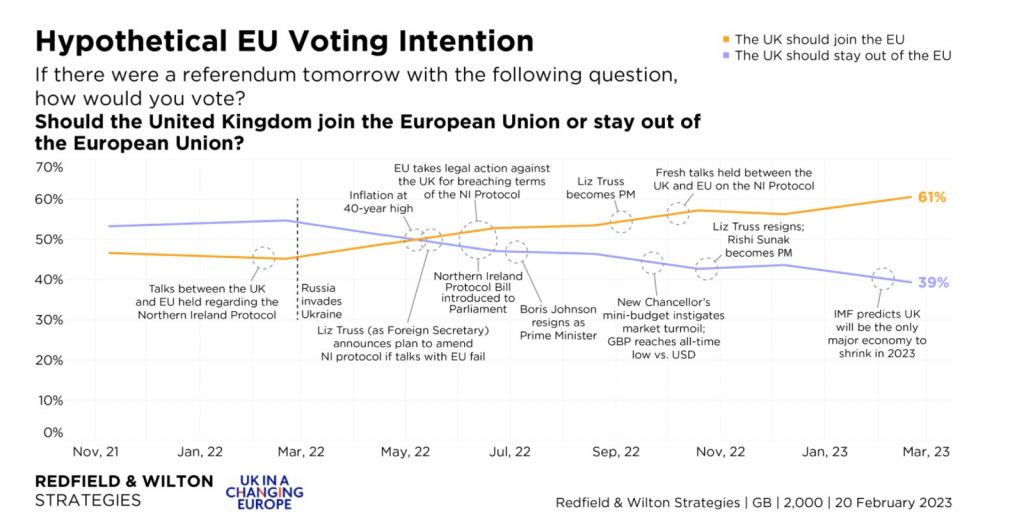
For years we have been lamenting losses, so it is much easier for us now to habitually retweet articles about Brexit damage than to shake off those autopilot habits and just stop… and start penning what our hopes are, how that brighter future could actually look, and what it would feel like for us.
“Rejoin” by itself is a word that may inspire us, but for others we will need to paint that picture of what it means in terms of opportunity, identity, significance, culture, excitement – and for ourselves, our children and the world around us. Those visions need to be married up with all the hopes of all the communities, demographics, cultures, sectors and localities in the UK. We are a beautiful fabric and our future vision must be woven for all.
So let me, as a candidate for chair in the current European Movement election, entrust to you some ideas I have been mulling. Please absorb them, muse on them, expand on them, complement them with other ideas. It is time for us to come out of our slumber, stretch our legs, have our morning brew and say assertively: “Right – this is the future Britain that I want”.
The Great British Return would be a great historical moment
First and foremost, the moment of our return to Europe is fundamentally about our identity. Yes, it would be a historical moment of global importance, but on a national level it is about our own story and who we are. It is about what we have shaken off and what we are embracing.
In every good tale, there is a necessary moment of failure and doubt; a losing of one’s way, or a seemingly dead end. But then the protagonist finds the courage to shake off the doom, find their passion, fight the good fight, right a wrong, and finally come home celebrated and wiser than when they first left. That’s the story I want for our nation – a defining story of our character.
We must imagine this and then make that vision real. I want my country to be a responsible country. Not defined by peddling victim narratives and alienating neighbours, but acting like a confident, robust team-player, a helper to all and a leader. In the aftermath of the 2008/9 financial collapse,
Europe was beset with multiple problems and we chose not to lead, but to run away. And in running away, we also entered a period of relentless lying, arrant corruption, and shameful dog whistle politics. Part of our national story has to be the vanquishing of this period and this type of politics. With an act of homecoming to our European family, we can bury this awful period in our history, and their high priests, with aplomb and regain our international reputation overnight.
It’s time we came back, sober and wiser, having banished our worst elements. It’s time we returned from the wilderness, with a clearer sense of the role we can and should play in the cohesion, security, values and direction of our continent.
Imagine for a moment, if the UK and Ukraine were to both join the EU on the same day. What a highlight in history that would be. And we would be there at the heart of the story, our principles blazing anew. What a defence, also, of all the values we championed at the end of World War II. This is the national identity I want for us, for our children and our future.
The Great British Return would mean a re-awakening of British cultural opportunity and freedom
Putting aside all economic arguments for now, let us keep talking about our culture and identity. British culture is a huge global force – our actors, musicians, stories, films, theatre. Brexit has now boxed them in. They know it and the wider public knows it. And the government’s cynicism has also sought to rip us from our cultural roots and exchanges as a European country. Imagine the new energy unleashed once Brexit shackles are thrown off and British art and culture can travel our continent freely again.
Let us not forget just how profoundly British culture has been entwined with wider European culture down the centuries. After invasions by Romans, Vikings and Normans, our kings and queens intermarried with European royalty down the centuries.
Queen Victoria was nicknamed “Grandmother of Europe” as among her grandchildren were Wilhelm II the German Emperor, Queen Sophie of Greece, Maud queen consort of Norway, Alexandra czarina of Russia, Marie consort of King Ferdinand I of Romania, and Queen Victoria Eugenie of Spain.
Shakespeare’s plays were set all over Europe – Hamlet, Prince of Denmark, The Merchant of Venice, Two Gentlemen of Verona, The Winter’s Tale (Sicily & Bohemia), both Othello and Romeo & Juliette were based in northern Italy, Measure for Measure was based in Austria, and A Midsummer’s Night Dream was set in “a forest near Athens”.
And our science. After all the centuries of continental scholarly exchange, the recent formation of the Horizon programmes and the Framework programmes before have absolutely revolutionised science in the modern era by their capacity to put together 10-, 12-, and 14-nation collaboration projects with a single grant application that can then connect with countries further afield and form global hubs of world-beating research.
And who was at the heart of this until late? The UK. We, more than any other country, were the lead partners, the coordinators, of these incredible shared projects. This is part of our culture too. We really were leaders – and Europe was our team.
And right across our society and sectors, so many Europeans flocked to our shores because they believed in who we were and wanted to spend their lives helping to build up our great nation. Brexit shocked them.
The culture, politics, science, philosophy, histories and mythologies of Europe are part of our British cultural heritage – not to be blocked by the recent spasm of myopic tabloid rage, Brexit travel and trade barriers, a Singapore-on-Thames model of UK plc, a removal of freedoms and rights, and plastic union flags waved in our faces by way of ‘patriotic’ compensation.
British culture is our long European traditions fused with our unique global immigrant mix and a very healthy dose of eccentricity to form the stunningly creative nation that we are. Let’s imagine what it would feel like to tear down those barriers, feel the freedom anew, celebrate the cultural exchanges and actually invest in them too.
Rejoining opens the doors for British creativity to thrive again with a newfound joy. “I was born a European and I f—- love being a European,” said Ed Sheeran a year after the Brexit vote. Our arts and music industries overwhelmingly get it and the next generations of Brits growing up do too. That’s the message – let us Rejoin to let our arts, science and culture thrive freely again.
The Great British Return could fund countless causes
It has been calculated that the Brexit blow to the economy, once you exclude Ukraine and pandemic factors, translates into a £40bn annual loss in UK tax revenues. Although we could complain about the profound economic damage to our country, we could also turn it around and talk about the financial win available on our doorstep, given that Brexit is entirely reversible.
In a stroke, or in a few steps, we can get rid of the red tape, duplications, market barriers, and chilling effect on investment. This brings not just more money into our businesses, but more money into our public coffers which can then be allocated to fixing pressing problems.
We know the Leave campaign promised money from Brexit to fix things, against our protestations that this was false economics, but that theory has now been tested, hasn’t it? Now it’s abundantly clear that being in equals more money and being out equals less money.
We did the experiment. Data are on the table. It’s tested and proven. So now let’s talk to all those sectors, communities and demographics about *their* needs – and how rebuilding our closeness with Europe, step-by-step starts opening up what they need for their futures.
That goes across personal freedoms, rights and protections, business opportunities, cultural opportunities, networking and also public funding. What do they need? Sector by sector and interest by interest, let’s find out what people really need and how rejoining the EU can support that.
£40billion is a lot of money. It’s certainly a lot more than the £13billion we paid into the EU annually for shared investments. It would fix quite a few public sector pay disputes and then some! It would also allow for massive levels of investments in a whole range of priorities.
The big problem with the politics around our EU membership previously was that we *were* on a financial winner, but our government was not taking that extra money, calling it our ‘membership bonus’, and investing it back into the public sector, services, or levelling-up projects alongside the EU’s stable, long-term and dependable regional development funds. They just pointed to the outgoings as if they were a loss, rather than an investment in our own huge home market that was allowing our businesses to reap phenomenal rewards.
We should not make that mistake again. Membership is a huge financial win. Let’s reclaim it, point it out, and invest it in the British people right across society.
The Great British Return would safeguard our British European standards
Quality of life is key for our future. GDP means nothing if all that GDP is in the hands of a few while the rest of the country struggles under impoverished education, food, opportunities, and housing.
In Europe, there has been a drive on fundamental issues around quality of life for all citizens, animals, and the environment around us. Brits value this hugely. We value standards and protections in our lives, and feel closer to our fellow Europeans on such standards than we do to the US, for example.
In the EU, we didn’t just have water and air quality standards to keep to, we could actually take our government to the European courts if they breached agreed standards. So fundamental standards around environment, food and animal welfare not only provided legal protections, but they also provided long-term guarantees that not even our government could escape.
With Brexit, the government claimed that we had the freedom to improve our standards in food, animal welfare, environment and so forth. Yet what we have seen is what we feared – a horror show government undermining British values and standards without explicit public support, because they can. Whereas, on the EU level, when over two dozen countries agree to set standards together – they are usually pretty good, thoroughly cross-checked standards. And they stick.
Did you know that the Lisbon Treaty declared animals as sentient beings and as such, became the foundation for so much animal protection legislation across Europe? In 1991, Compassion in World Farming submitted a petition to the European Parliament with over 1 million signatures calling for animals to be recognised as sentient beings. It was accepted immediately as a not legally binding ‘treaty declaration’ before, in 1997, it became a Protocol within the Treaty of Amsterdam, then became a full Article in The Lisbon Treaty in 2009.
Compassion in World Farming is a UK-based organisation. It’s another example of British values and British standards having a Europe-wide impact and then setting in stone standards at a European level to stop unscrupulous governments rolling back on standards we have already won. If we rejoined the EU, we could again be the citizens championing British-European values across the entire continent. And it would be secure across the continent, including for us in the UK.
Genuine positive and responsible visions always stand the test of time
It is the positive emotional content that we need to infuse into our arguments. That energy and hope will then percolate up, down and sideways through everything we do – and enthusiasm is something that is very difficult for cynics to knock down.
We must develop those visions in collaboration with all of the communities of these isles. This cannot be like the rushed false marketing of the Leave campaign where wild, contradicting promises were scattered everywhere cynically to harvest unrequited votes. That never holds. They gave nothing to the next generation that would encourage them to carry their Brexit flame.
What we offer our society and the next generations needs to be genuine opportunities worked out in collaboration with all. These then must be championed by community leaders of all parts of the UK and supported by our pro-European community so that it is an inclusive, inspiring future for everyone.
That is the kind of Britain I want. And I want us to lead it.
Dr Mike Galsworthy is director of Scientists for EU, co-director of the Bylines Network and a candidate for chair of European Movement UK

